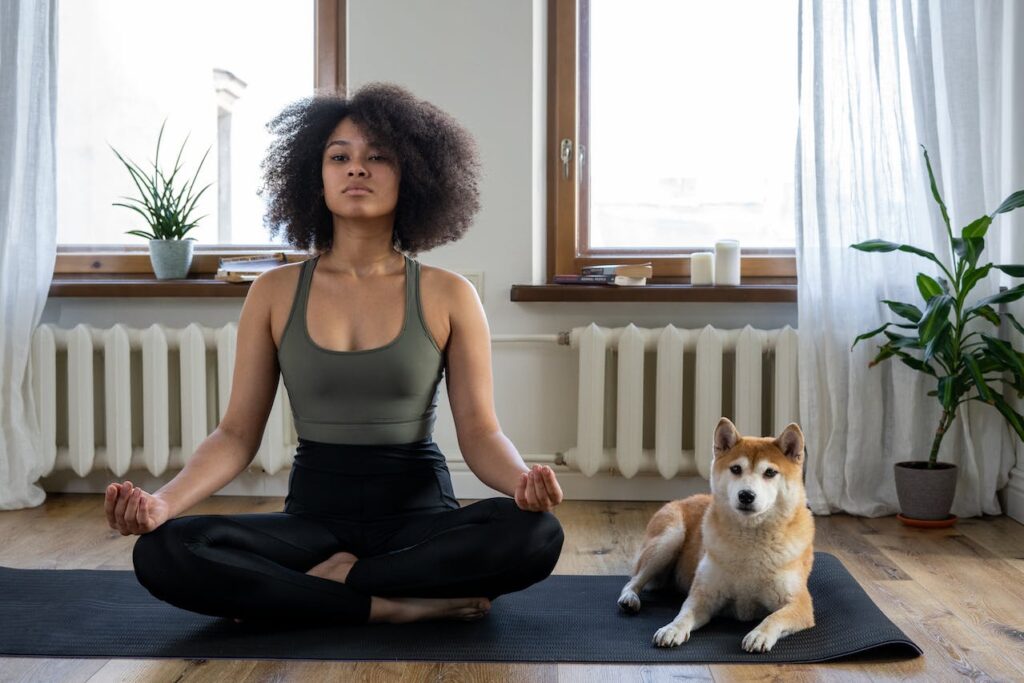
In the fast-paced world of today, you frequently wind yourselves up exhausted and stressed out at the end of the week from the daily grind. Physical and emotional health can be negatively impacted by the demands of job, family, and everyday obligations. It’s critical to identify efficient strategies for relaxing and recharging during these times. Yoga is one age-old discipline that is a comfort and relaxation aid. After a demanding week, this post will discuss how yoga can be a life-changing tool that helps you unwind and find calm.
- The Essence of Yoga
It’s important to comprehend the fundamentals of this age-old practice before diving into the particular ways that yoga can promote calm. Yoga is more than just a physical workout regimen. It is an all-encompassing way of living that takes into account one’s mental, emotional, and spiritual health. The fundamental goal of yoga is to achieve balance and inner serenity by bringing the body, mind, and spirit into harmony. Asanas (postures), pranayama (breathing exercises), and Vedic Meditation are the three main techniques used in yoga practice.
- Relieving Physical Tension through Asanas
Doing physical postures, or asanas, in yoga is one of the most obvious ways the practice promotes relaxation. The goals of these poses are to improve strength, flexibility, and relaxation. Yoga poses are a good way to release the physical stress that builds up after a busy week.
Yoga poses assist in relieving the aches and pains that frequently accompany stress by strengthening and extending various muscle groups. Certain poses, such as Child’s Pose, Cat-Cow, and Savasana, are especially beneficial for the body. These poses encourage relaxation by gently releasing tense muscles.
You can also relieve tension by going on a retreat that will teach you the principles of divine feminine energy. Many of these trips include regular asana practice that helps to alleviate physical discomfort and improve posture, which enhances general well-being. During these trips, your body experiences a calming and relaxing influence from the deep stretches and deliberate motions of yoga poses, which produce endorphins that are naturally occurring mood boosters.
- Cultivating Mindfulness through Vedic Meditation
Yoga includes Vedic Meditation as a basic component of the practice, in addition to physical postures. Stress reduction and mental calmness are greatly aided by Vedic Meditation. It promotes mindfulness, which enables you to be present in the moment. It does this by having you concentrate on your breath, an object, or a mantra.
Regular mindfulness practice improves your capacity to release tension and anxiety, fostering calm and relaxation. It makes you more conscious of your feelings and ideas, enabling you to accept them without passing judgment and progressively letting go of their hold on you.
Those who struggle with racing thoughts and an inability to turn off their minds will find that Vedic Meditation is very helpful. Vedic Meditation’s divine feminine energy resides in its capacity to help you establish a deeper, more peaceful connection with yourself and your inner self.
- Enhancing Emotional Wellbeing
Yoga relieves physical tension and aids in the reduction of emotional stress. It offers a secure environment for examining and comprehending your feelings. Inner energy frequently yearns for emotional comfort and care. Yoga helps with this by facilitating a deeper, more intimate connection with your inner self.
You can let go of emotional baggage and pent-up emotions with yoga. Asanas that expand your heart chakra, such as Camel Pose and Heart-Opening Asanas, help you develop love and compassion for both yourself and other people. This emotional release has the potential to be quite cathartic and beneficial for both relaxation and emotional recovery.
Additionally, yoga encourages the release of endorphins, which are organic mood enhancers. This can promote emotional balance, relaxation, and a reduction in the symptoms of anxiety and sadness.
- Improving Sleep Quality
Disrupted sleep habits are among the most prevalent aftereffects of a long and exhausting week. Anxiety and stress can cause insomnia and poor-quality sleep, both of which can increase stress levels. On the other hand, yoga can be a useful ally in enhancing sleep.
Yoga’s mindfulness and relaxation practices assist in calming the mind, which facilitates falling and staying asleep. Yoga Nidra is a particularly useful technique for encouraging sound sleep. It is a guided deep relaxation therapy.
Regular yoga practice will also help you establish a habit and regulate your body’s internal clock, which can facilitate winding down and getting ready for a restful night’s sleep. With use, relaxation techniques become second nature to the body and mind, making them easy to use before bed to ensure a restful night’s sleep.
Conclusion
Following a stressful and lengthy week, yoga is a diverse practice that can be an effective tool for relaxing. Practices such as pranayama, Vedic Meditation, and yoga help to balance energy, release tension in the body, and improve emotional well-being. It also helps to enhance the quality of sleep and offers a space for connecting with the feminine energy that resides within. By adding yoga into daily practice, you can discover the calm and relaxation you require to refuel so that you can take on the difficulties of the upcoming week with a fresh outlook and more inner balance.


